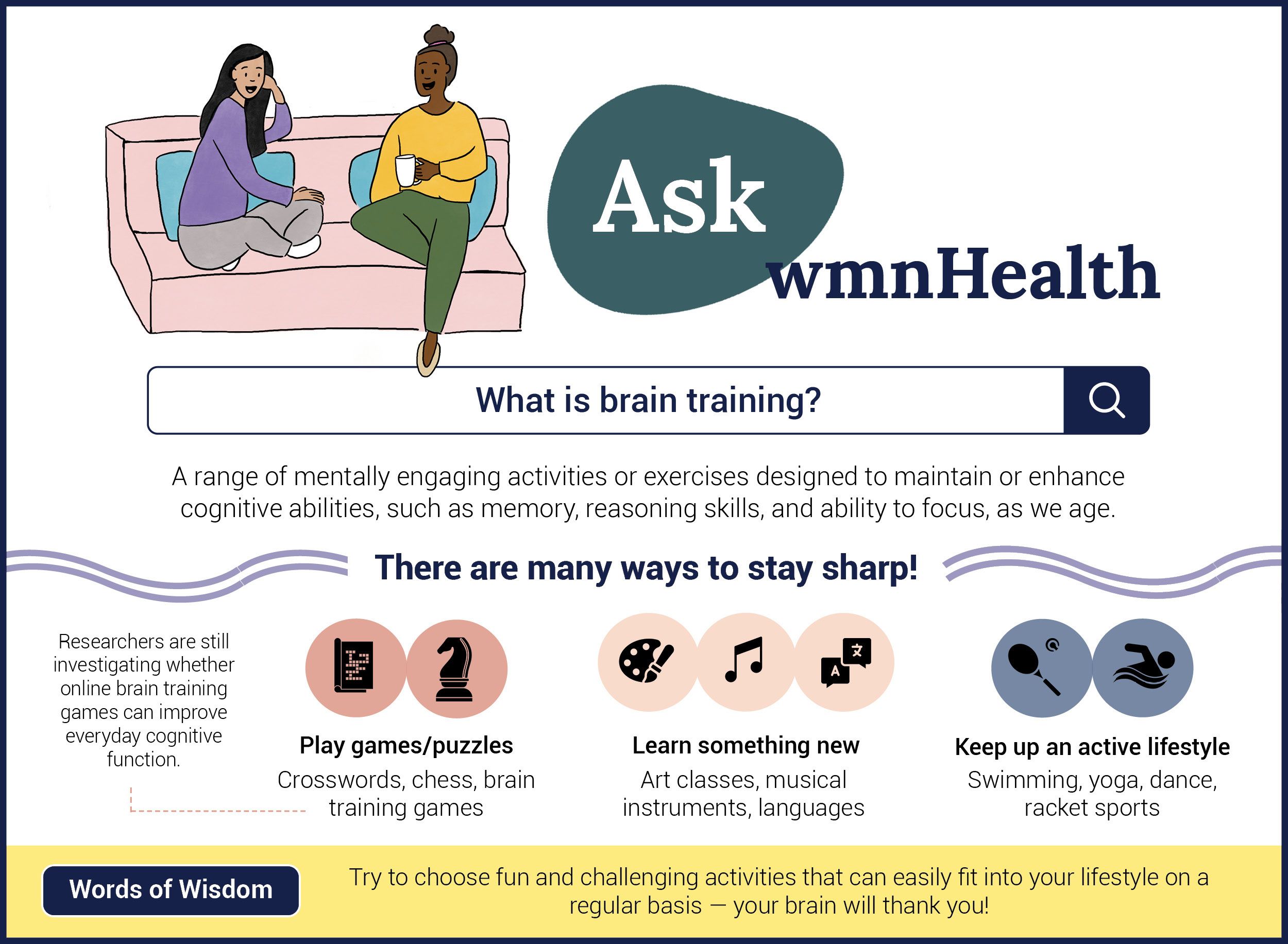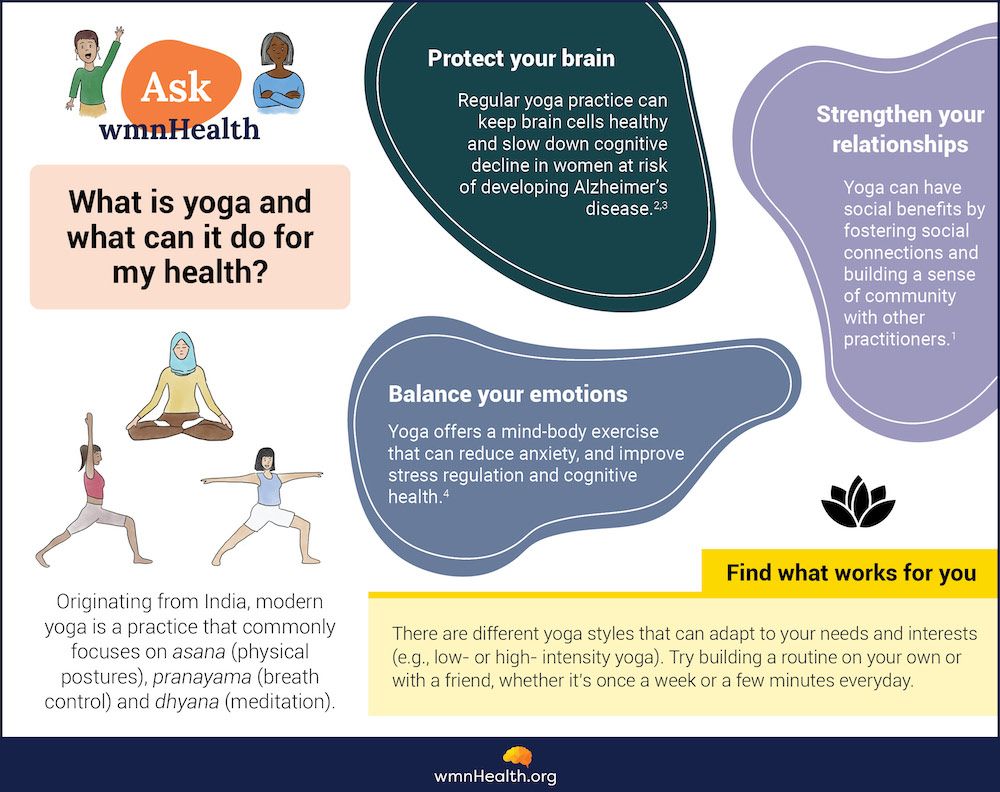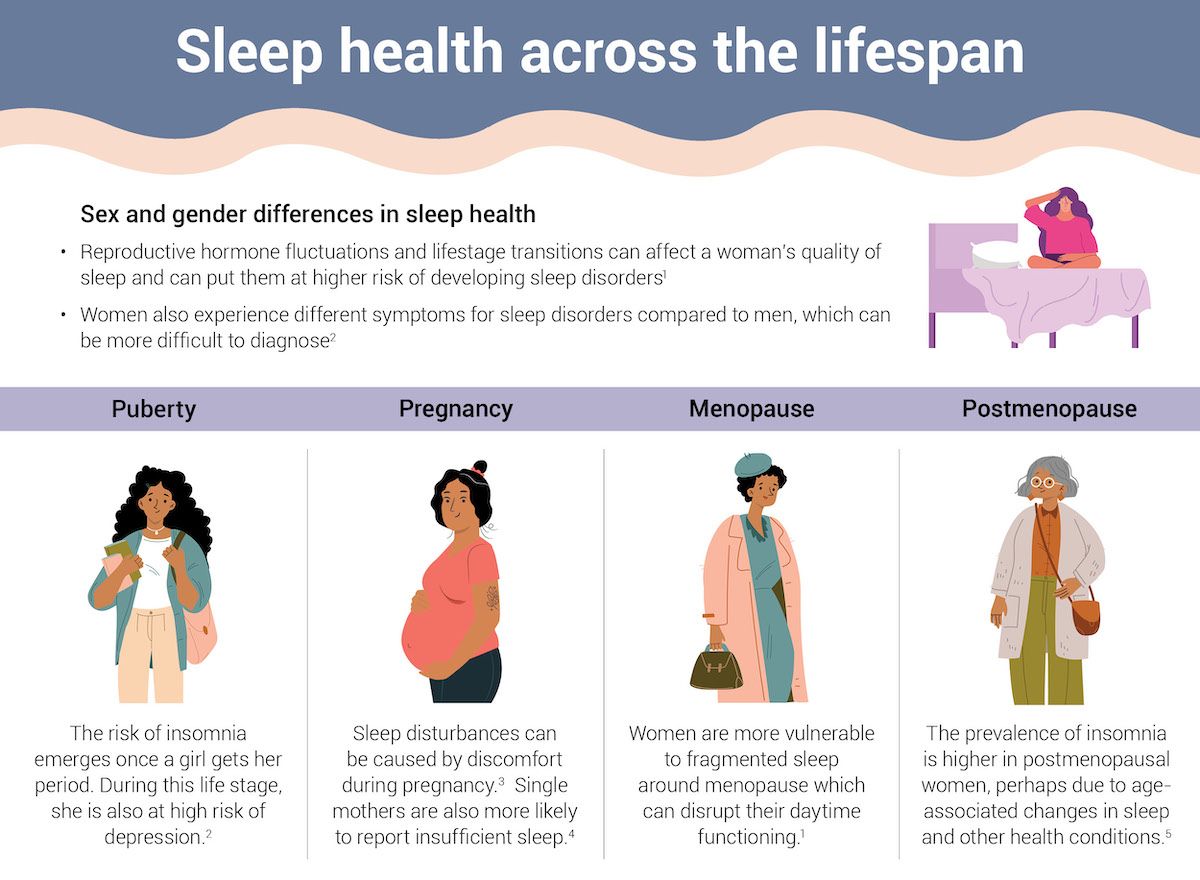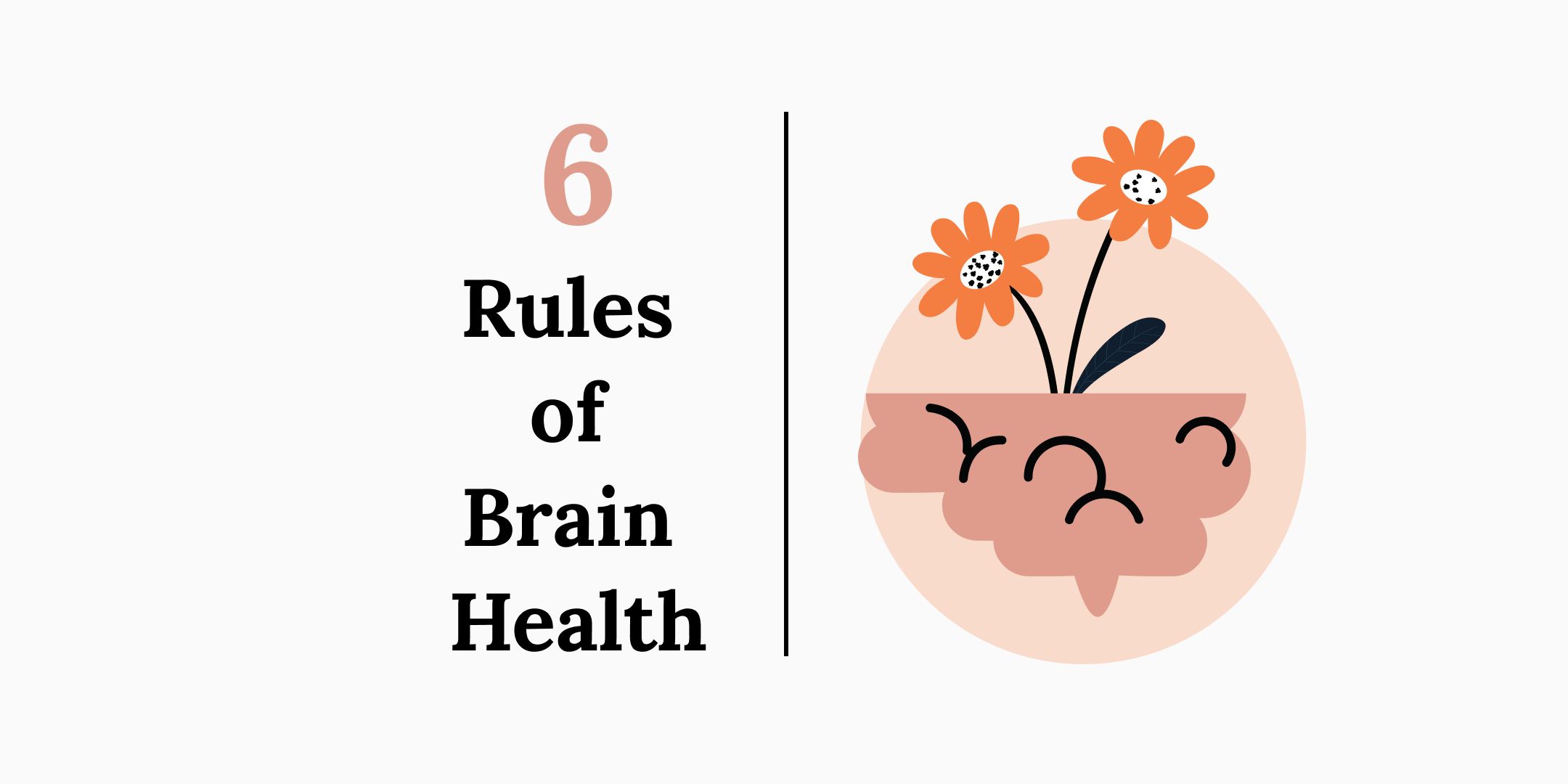
This article covers:
- What are the 6 rules of brain health?
- Engage the brain: What is brain training?
- Stay socially connected: How do you cultivate connection and belonging?
- Reduce stress: How does stress impact the brain?
- Exercise regularly: What can yoga do for the brain?
- Sleep plenty: What are the sex and gender differences in sleep health across the lifespan?
- Eat well: What is the MIND diet?
If you’re even a little bit health conscious, you’ve probably heard the saying: “Eat food. Not too much. Mostly plants.”
In an age of rigid diets and conflicting health advice, those “food rules” — popularized by author and journalist Michael Pollan — serve as a simple guide to healthy eating.
Did you know there are also simple rules for brain health? And the earlier you embrace them, the better?
Like Pollan’s maxims, the brain health rules are practical and rooted in common sense and science. For example, in 2020, a global team of brain researchers identified 12 healthy lifestyle factors for dementia that if followed would prevent or delay four out of 10 dementia cases. They include treating hypertension, quitting smoking, exercising regularly, avoiding excess alcohol, and maintaining social contact. And just this month, a different team pinpointed 7 factors that cut a person's risk for depression. They estimated that people who adhere to these healthy lifestyle factors could cut their depression risk by 57 percent.
These healthy lifestyle factors can be distilled into the six pillars, or “rules,” of brain health.
In this article, we share these simple rules, meant to help women at any age keep their brains thriving and reduce the risk of dementia, depression, and other conditions. We also offer research-backed tips on how to put these lessons into practice.
That's not to say that individual actions alone can prevent dementia and other neurological or mental health conditions. Society, the environment, and genetics also influence a person's risk of developing brain diseases. But lifestyle changes are a powerful salve — and complement other strategies to reduce the risk of mental and neurological conditions.
6 Brain health rules
- Engage your brain
- Stay socially engaged
- Manage stress
- Exercise regularly
- Get a good night’s sleep
- Eat well
1. Engage your brain
Learning is good for the brain. As you learn, your brain makes new connections and strengthens existing ones. This helps build “cognitive reserve,” the brain’s ability to adapt to age- or disease-related changes. While all intellectual activities are beneficial, some appear to provide a better workout for your brain than others. In one study, activities such as using a computer, playing games, reading books, and doing crafts like knitting and woodworking were associated with a 30 to 50 percent decrease in the chances of developing mild cognitive impairment. Learning a new instrument or language is another way to exercise the brain.
Tip: Take the Stand Ahead Challenge, an annual awareness and fundraising campaign from the Women’s Brain Health Initiative that encourages you to test your mental fitness and share the results. This year, try the Thumbs Up Challenge: Put your left thumb up and point to it with your right index finger, then switch 10 times.
2. Stay socially engaged
We often overlook the fact that social connections and belonging are fundamental human needs — as essential to life as food, water, and oxygen. Yet, the U.S. Surgeon General recently declared a loneliness epidemic and stressed that the absence of social connections has a profoundly negative impact on our psychological and physical health.
Here’s what the science says: Social disconnection increases the risk of many serious health conditions, including heart disease, stroke, hypertension, dementia, diabetes, depression, and anxiety. Furthermore, social isolation and loneliness increase the risk for premature death by 29% and 26%, respectively, and lacking social connection can increase the risk of premature death as much as smoking up to 15 cigarettes daily.
Tip: Need a little push? Talk to your healthcare provider about a social prescription in which a health professional refers a patient to a community or cultural activity to bolster their mental and physical health. Plus, select a strategy below to cultivate belonging.
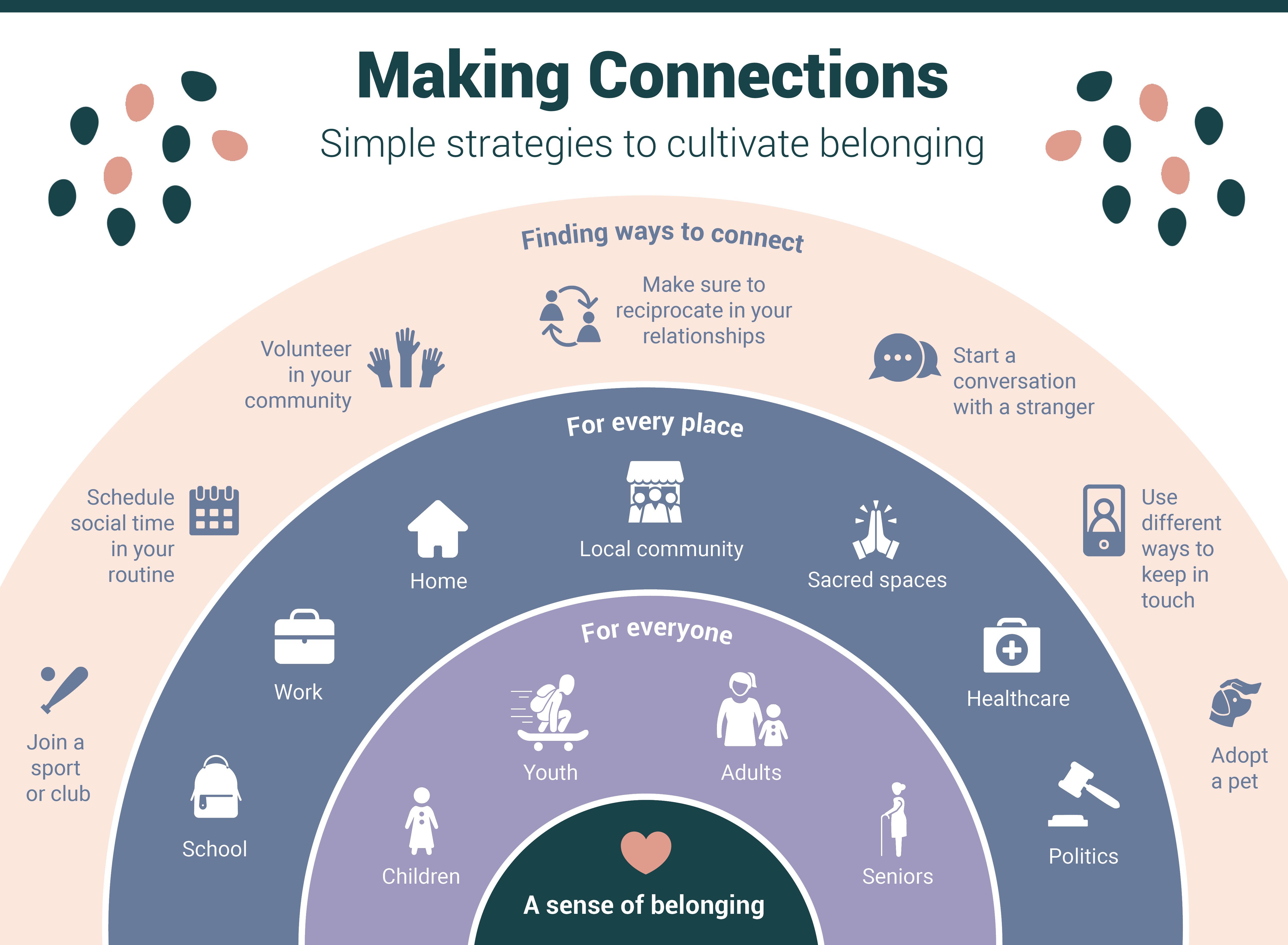
3. Manage stress
When you think about it, self-care is really about managing stress.
Decades of research have revealed the detrimental effects of chronic stress on the female brain, with evidence suggesting that stress hits women’s brains differently and harder. Researchers recently pinpointed how different cell types in the brain react to stress — and how the stress response differs between males and females. Studying mice, the scientists found that a particular type of support cell in the brain was more susceptible to stress in females compared with male mice.
That kind of research is adding to our existing understanding of stress and the brain, in which elevated cortisol levels, a hallmark of chronic stress, are known to impair neuroplasticity, undermine the ability to think and remember, and exacerbate mood disorders such as anxiety and depression — conditions that are more prevalent among women. Stress can also disrupt sleep patterns, worsening the cognitive and emotional changes already brought on by stress.
Tip: Embrace self-care strategies that help you relieve stress, such as relaxation practices like belly breathing, mindfulness meditation, or yoga.
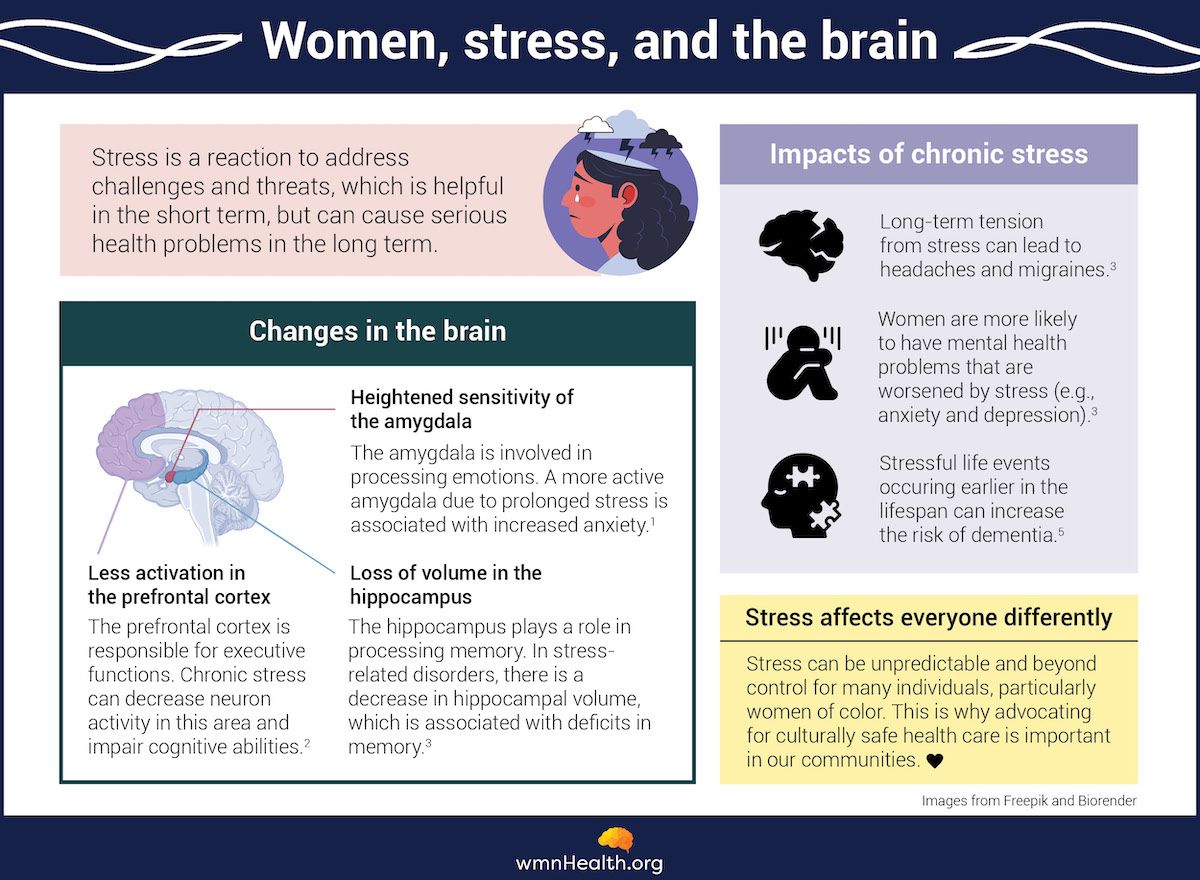 (View references.)
(View references.)
4. Exercise regularly
Physical inactivity heightens a person's risk for Alzheimer’s and contributes to about 13% of Alzheimer’s cases worldwide. Conversely, frequent exercise reduces the risk for Alzheimer’s disease and related dementias by improving cardiovascular and metabolic health and through direct effects on the brain. For example, studies in mice have shown that physical activity stimulates the growth of new nerve cells and reduces memory problems. Exercise also reduces deposits of amyloid beta, a protein that builds up in the brains of people with Alzheimer’s disease, triggering inflammation and disrupting communication between brain cells.
Tip: The U.S. Centers for Disease Control recommends adults get at least 150 minutes of moderate-intensity physical activity weekly or 75 minutes of vigorous-intensity activity for brain health. Consider yoga, which combines rhythmic breathing and movement and has been described as “weightlifting for the brain” because of its beneficial effects on brain function.
5. Get a good night’s sleep
Sleep is pivotal to preserving and optimizing brain health, particularly in women. Research has illuminated the relationship between sleep and cognitive function, highlighting sleep's indispensable role in consolidating memory, regulating emotions, and daily brain recovery. This connection is even more critical for women because hormonal fluctuations throughout the menstrual cycle, pregnancy, and menopause can significantly impact sleep patterns and quality (see below). Adequate sleep also enhances neuroplasticity, the brain’s ability to modify itself, which helps protect against age-related cognitive decline and mood disorders that disproportionately affect women.
Tip: Take naps. A new brain imaging study found a link between napping and brain volume and suggests that napping may help to preserve brain health by slowing the rate at which our brains shrink as we age.
6. Eat well
You really can eat to protect your brain. Researchers have combined two well-known heart-healthy diets — Mediterranean and DASH — into one designed to maintain brain health as we age. Called the MIND diet, it emphasizes foods like leafy green vegetables, berries, nuts, beans, whole grains, seafood, chicken, and olive oil. These foods are rich in vitamins and antioxidants known as carotenoids and flavonoids, which may protect the brain by reducing oxidative stress and inflammation. MIND also de-emphasizes red meat, butter, cheese, sweets, and fast food, which are high in saturated fats and sugar and increase the risk of cardiovascular disease.
Though it is labelled a diet, MIND is not prescriptive. Instead, it encourages people to eat more of some foods and less of others. In 2015, researchers found that the MIND diet could slow cognitive decline and lower Alzheimer’s risk, even if the diet is not followed closely. A recent clinical trial — the first of its kind — cast doubt on MIND’s ability to slow cognitive aging in people aged 65 and older, at least over a relatively short period (3 years). Still, experts say the diet is rich in foods that benefit brain health, and its impacts are likely to emerge over time. Research is ongoing.
Tip: Add more of MIND’s brain-healthy foods, such as chicken and fish, leafy greens and berries, to your diet while cutting back on red meat, butter, full-fat cheese, and sweets.
Banner image from Freepik.
